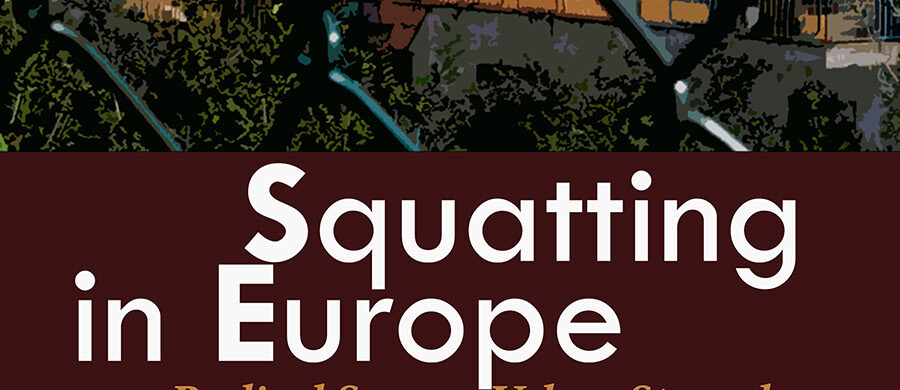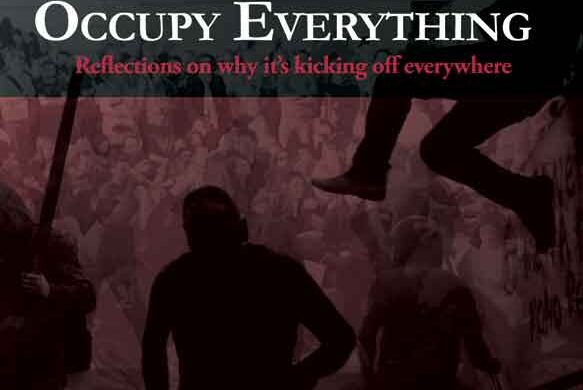Author: Minor Compositions
-
Mayday Screening: The Condition of the Working Class
Screening May 1: The Condition of the Working Class @ Wivenhoe 7:30 PM, May 1st @ Nottage Maritime Institute The Quay Wivenhoe Colchester CO7 9BX A new documentary feature film by Michael Wayne & Deirdre O’Neill There will be a Q&A with the directors after the screening. Everything changes and yet everything stays the same.…
-
The Politics of Workers’ Inquiry Conference May 2-3
The Politics of Workers’ Inquiry Conference May 2-3, 2013 @ University of Essex Workers’ inquiry is an approach to and practice of knowledge production that seeks to understand the changing composition of labor and its potential for revolutionary social transformation. It is the practice of turning the tools of the social sciences into weapons of…
-

Squatting in Europe
Squatting in Europe: Radical Spaces, Urban Struggles Edited by the Squatting Europe Kollective Squatting offers a radical but simple solution to the crises of housing, homelessness, and the lack of social space that mark contemporary society: occupying empty buildings and rebuilding lives and communities in the process. Squatting has a long and complex history, interwoven…
-
Contract & Contagion
Contract & Contagion: From Biopolitics to Oikonomia Angela Mitropoulos Contract and Contagion presents a theoretical approach for understanding the complex shifts of post-Fordism and neoliberalism by way of a critical reading of contracts, and through an exploration of the shifting politics of the household. It focuses on the salient question of capitalist futurity in order…
-

Open Utopia
Open Utopia Thomas More & Stephen Duncombe Opinion polls, volatile voting patterns, and street protests demonstrate widespread dissatisfaction with the current system, yet the popular response so far has largely been limited to the angry outcry of No! But negation, by itself, affects nothing. The dominant system doesn’t dominate because people agree with it; it…
-
The Metropolitan Factory: Worker’s Inquiry & Creative Labor Today
Minor Compositions is launching a workers’ inquiry into the shaping of creative, cultural, and artistic labor in the metropolis. We are currently searching for accomplices and comrades to take part and further develop this investigation. Description and more information below. The Metropolitan Factory: making a living as a creative worker Short survey on creative labor
-

Punkademics
Punkademics Edited by Zack Furness The basement show in the ivory tower… In the thirty years since Dick Hebdige published Subculture: The Meaning of Style, the seemingly antithetical worlds of punk rock and academia have converged in some rather interesting, if not peculiar, ways. A once marginal subculture documented in homemade ‘zines and three chord…
-
Intimate Bureaucracies
Intimate Bureaucracies: A Manifesto dj readies [Craig Saper] Intimate Bureaucracies is a history from the future looking backward at the present moment as a turning point. Our systems of organization and control appear unsustainable and brutal, and we are feeling around in the dark for alternatives. Using experiments in social organization in downtown New York…
-
Lessons of 2011: Three Theses on Political Organization
Seminar on Political Organization March 12th March 12th, 4PM-6PM @ University of Essex Room 5N.7.23 Centre for Work, Organization, and Society Rodrigo Nunes, Pontifical Catholic University of Rio Grande Do Sul With the Arab Spring, the Spanish indignados, Occupy and so much more, 2011 is likely to go down in history as a very special year…
-

Occupy Everything! Reflections on why it’s kicking off everywhere
Occupy Everything! Reflections on why it’s kicking off everywhere Ed. Alessio Lunghi & Seth Wheeler Penned after the 2010 European student unrest and before what is now commonly referred to as the “Arab spring” began to escalate, BBC Newsnight economist Paul Mason’s “20 Reasons Why It’s Kicking Off Everywhere” sought to establish an understanding of…


